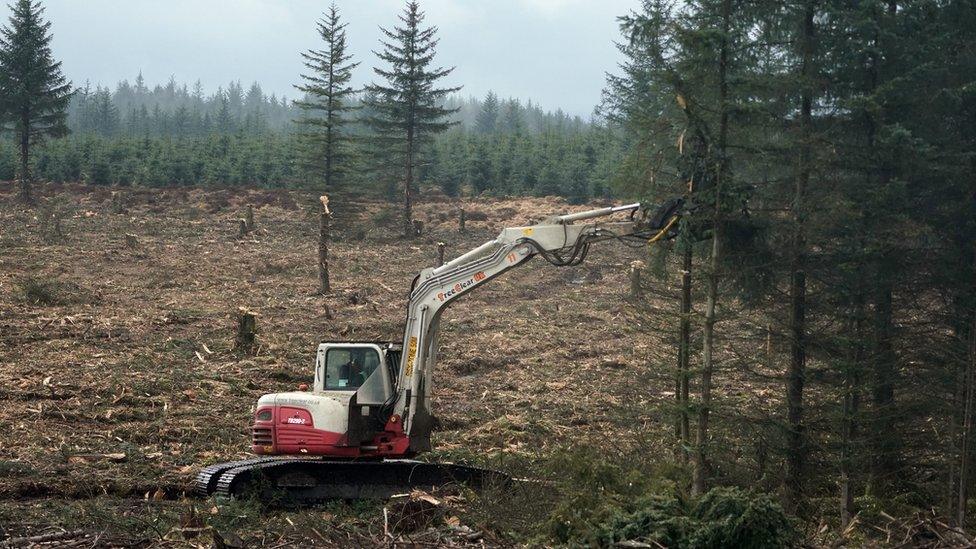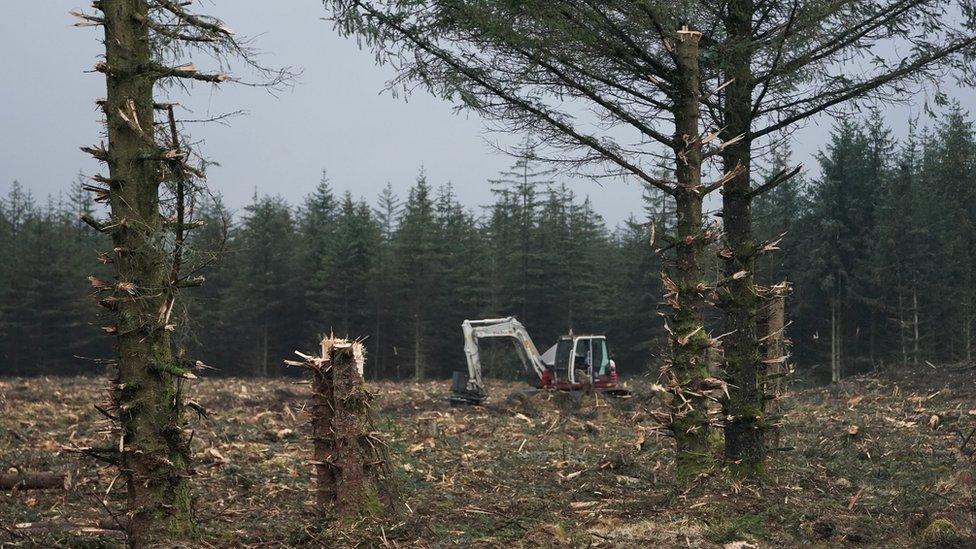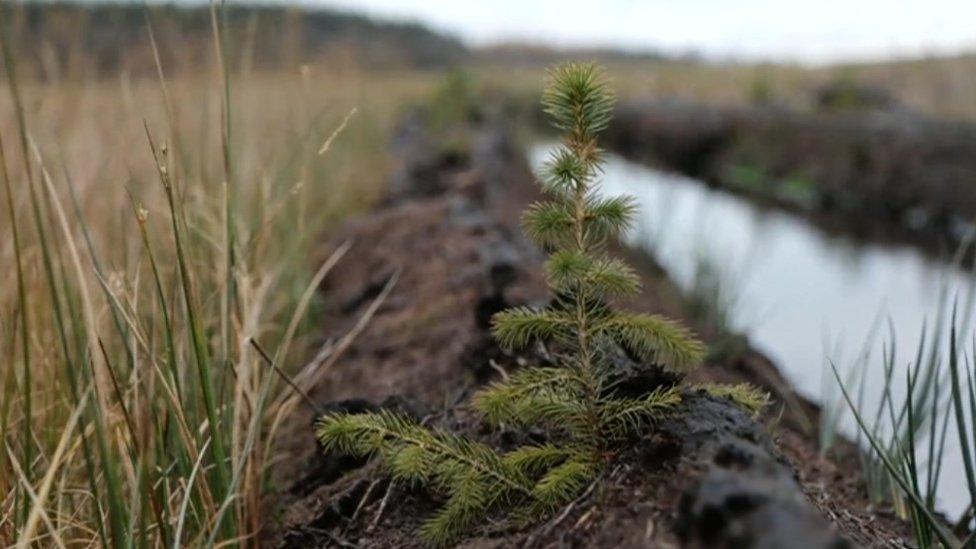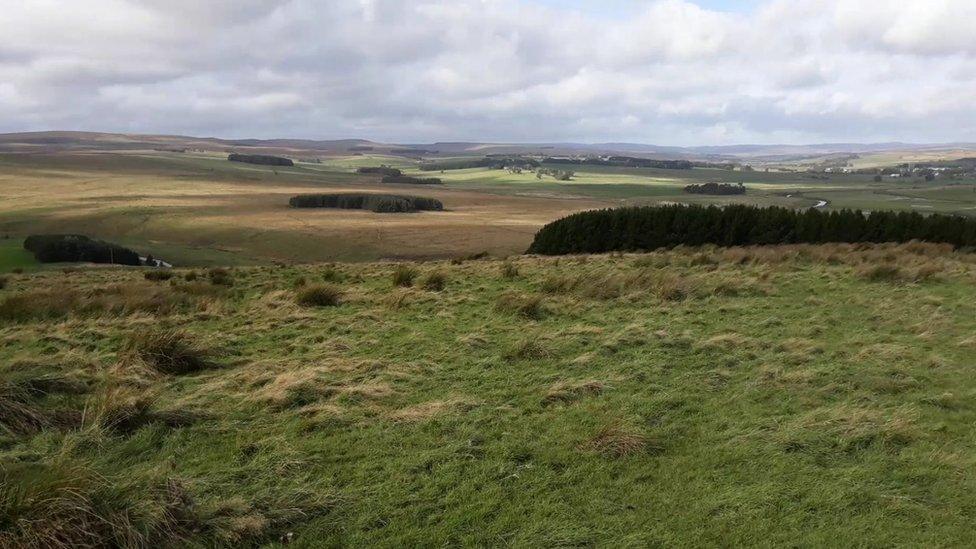Climate change: Border Mires 'tree mulchers' aid bog restoration
- Published

Trees dried out the nationally important bog and blocked out light for rare plant species
Massive machines which turn trees into chippings are being used to restore one of the UK's most important peatlands.
The ancient Border Mires habitat near Kielder Water in Northumberland saw thousands of spruce trees planted for timber in the post-war years.
However, drainage channels dried out the bog which is a vital carbon store in the fight against climate change.
Forestry England is clearing trees and blocking the channels so the land can retain large quantities of water again.
The "vertical mulching" machines have powerful cutting discs that quickly transform trunks into chips, which are then left in situ to degrade.

The specially designed tree mulchers tear down the spruces in seconds
Wayne Penrose, from Forestry England, described the mires as "incredibly important".
He said: "They date back to the end of the last Ice Age, 12,000 years ago, and so represent one of the most natural of all UK habitats.
"Not only do they support a fantastic array of plants and animals, including sphagnum moss, bog asphodel, sundews, dragonflies and wading birds, but they also lock away carbon in the peat.
"They play a crucial role in mitigating the effects of climate change."
He added: "We will also remove smaller spruce with chainsaws at three other locations, so the land retains water, the lifeblood of a bog."

Follow BBC North East & Cumbria on Twitter, external, Facebook, external and Instagram, external. Send your story ideas to northeastandcumbria@bbc.co.uk, external.
- Published17 November 2020

- Published29 April 2020
